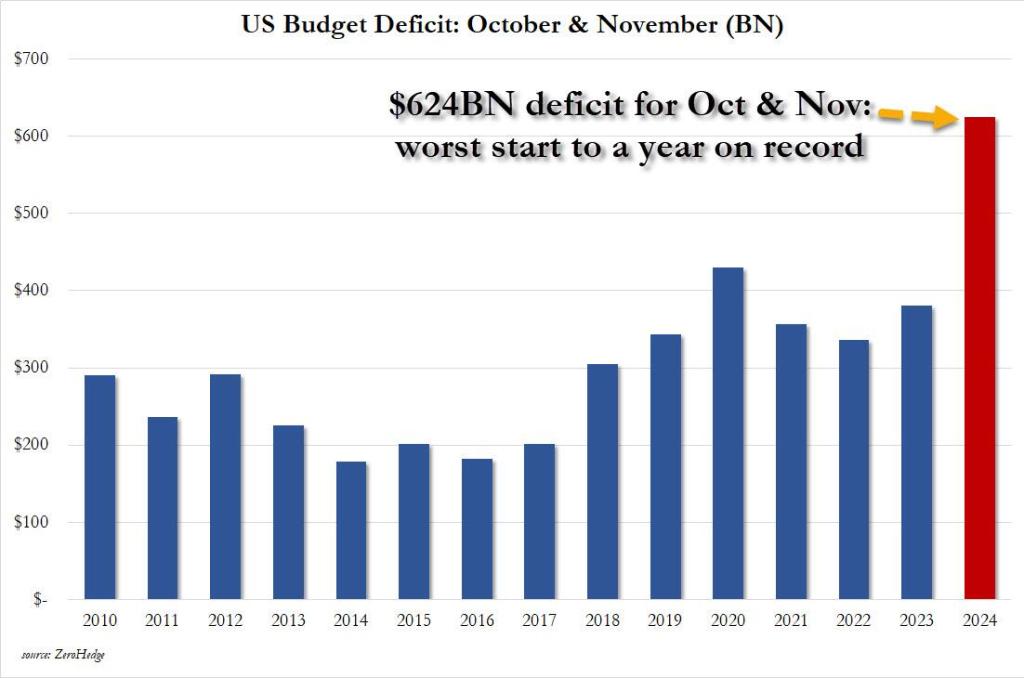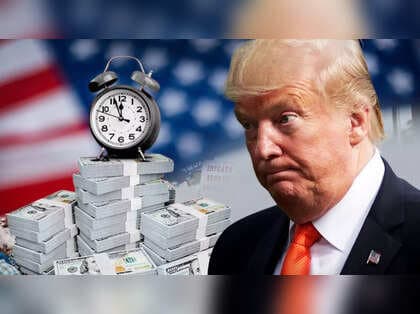U.S. Budget Deficit Soars 20% to $291 Billion in July Despite Record Tariff Gains
The U.S. budget deficit surged 20% in July compared to the previous year, reaching a staggering $291 billion, according to data released by the Treasury Department on Tuesday. This increase comes despite a remarkable surge in revenue from tariffs imposed by the Trump administration, which saw customs revenue rise by 273%, translating to an additional $21 billion in July alone.
Background & Context
The U.S. budget deficit is a critical economic indicator that reflects the government"s financial health and its ability to manage expenditures relative to income. The recent widening of the deficit raises questions about fiscal responsibility and the sustainability of the current spending trajectory. The increase in customs revenue, attributed to record tariff collections, highlights a paradox where heightened trade barriers meant to protect American industries have not translated into a balanced budget.
Tariffs, particularly those imposed on Chinese goods, were a cornerstone of President Trump"s trade policy, aimed at reducing the trade deficit and revitalizing American manufacturing. However, their efficacy in achieving long-term fiscal balance is now under scrutiny, especially as the federal government"s gross national debt approaches $37 trillion.
Key Developments
According to a Treasury official who spoke anonymously to preview the data, the rise in the budget deficit is largely driven by a combination of increased government spending and rising interest payments on public debt. Additionally, adjustments to Social Security payouts that reflect cost-of-living increases have contributed to the financial strain. This scenario underscores the challenges facing the federal government as it grapples with both rising revenue and escalating expenditures.
The stark contrast between the surge in tariff revenue and the growing deficit illustrates the complexities of fiscal management in the current economic climate. While the influx of tariff income provides a temporary buffer, it does not address the underlying issues of government spending that continue to outpace revenue generation.
\n\n
Image for U.S. Budget Deficit Soars 20% to $291 Billion in July Despite Record Tariff Gains
Broader Impact
The implications of a ballooning budget deficit extend beyond immediate fiscal concerns. Economists warn that persistent deficits can lead to higher interest rates, reduced investments, and potential long-term economic instability. The increase in interest payments on public debt is particularly alarming, as it consumes a larger portion of the federal budget, limiting funds available for essential services and programs.
Historical comparisons reveal that while deficits have fluctuated over the years, the current trajectory is unsustainable. The significant increase in customs revenue from tariffs could be seen as a short-term gain, but experts argue that it fails to address deeper economic challenges, such as productivity growth and income inequality. The situation mirrors previous fiscal crises where short-term financial strategies led to long-term economic repercussions, highlighting the need for comprehensive fiscal reform.
What"s Next
Looking ahead, policymakers face critical decisions regarding fiscal policy and budgetary priorities. The ongoing rise in the national debt necessitates a reevaluation of spending programs and potential reforms to tax policies. As previously reported, the administration"s efforts to control spending may be complicated by political pressures and public expectations for continued social services and infrastructure investment.
Moreover, the upcoming fiscal year will likely see debates surrounding the sustainability of current tariff levels and their long-term impact on the economy. The administration"s strategy to balance trade and support American industries will be under scrutiny, especially as global economic conditions evolve. Stakeholders across various sectors will be watching closely as the government navigates these complex fiscal challenges, with implications for both domestic and international economic relations.

Image for U.S. Budget Deficit Soars 20% to $291 Billion in July Despite Record Tariff Gains







![[Video] Gunfire between Iraqi security forces and Sadr militias in Baghdad](/_next/image?url=%2Fapi%2Fimage%2Fthumbnails%2Fthumbnail-1768343508874-4redb-thumbnail.jpg&w=3840&q=75)
